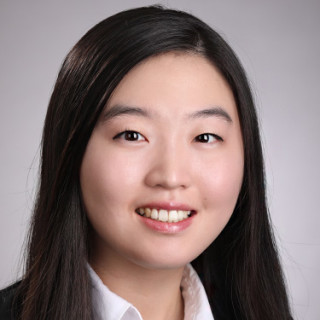
Since my teens, I've known that I wanted to become a doctor, but I was also aware of my personal shortcomings. Through shadowing physicians, I realized that doctors had to be outgoing and able to communicate with their patients, other health providers, and their colleagues.
The problem was that I was an introvert with a capital "I." I thrived when I was on my own, and being in a crowd drained much of my energy and effort. I blanched at the certainty that as a doctor, I would need to meet and communicate with waves of people in a frenzied hospital or clinical setting, but I was also drawn to the type of meaningful, one-on-one professional relationship that physicians could develop with patients over years, if not decades.
The first two years of medical school passed uneventfully as I spent most of my time studying alone. However, I dreaded the inevitable third-year looming in the distance. I looked enviously at my extroverted peers--the student council officers, the fraternity presidents, the sports team players--who could rise to any occasion. I imagined that my most outgoing peers could gain the confidence of their patients and their team by the sheer force of their personality alone, whereas I'd be running on fumes in the hustle and bustle of the hospital.
When third-year arrived, I would feel a wave of nervousness every time I stood in front of a patient's door. Before walking in, I maintained a personal ritual of reciting my introductory spiel in my head and taking a sharp intake of air.
But surprisingly, my introversion turned out to be more of a boon than a barrier. First, I've always preferred listening over talking because I think everyone is inherently fascinating and unique. Whenever I had the time, I would check in my patient and sit and listen to them as they depicted their lives before their hospitalization. I heard the individual stories of undocumented immigrants, professors, students, gang members, CEOs, and felons. The patients appreciated my interest in them as individuals and how I acknowledged their thoughts and feelings. Secondly, my ability for introspection allowed me to grow as a clinician. Whenever I made a mistake (which was often), I constantly thought about how I could improve myself, and my preceptors and residents noted my willingness and ability to learn from my mistakes in my clerkships evaluations. Thirdly, being an introvert meant that I understood what made me tick and that I was more than comfortable in turning down social obligations for the sake of my well-being. I became more cognizant about what I needed in terms of nutrition, exercise, and time to be alone. Despite the hurly-burly of the clinical year, I was able to keep to a healthy routine, and I found fulfillment by maintaining my relationship with a small coterie of friends and family members.
There were some aspects of being an introvert that I needed to address during clerkships, like becoming a more confident speaker in front of a group and knowing when to be gregarious and jocular to ease the tension in a group or with a patient. Still, more often than not, I was able to use my introversion to become more skilled in extraversion. The third year of the medical school set the stage for my growth into a more socially outgoing individual, not only in the hospital setting but also in my private and public life. After encountering a large swath of humanity in the hospital, there are very few social instances that I feel unprepared for. As said by Frank Sinatra, if I could make it there, I can make it anywhere.
Yoo Jung Kim is a medical student at Stanford University and author of What Every Science Student Should Know (University of Chicago Press). Her articles have appeared in the Washington Post, The Mercury News, The Seattle Times, and KevinMD. She is a 2018-2019 Doximity Author.






